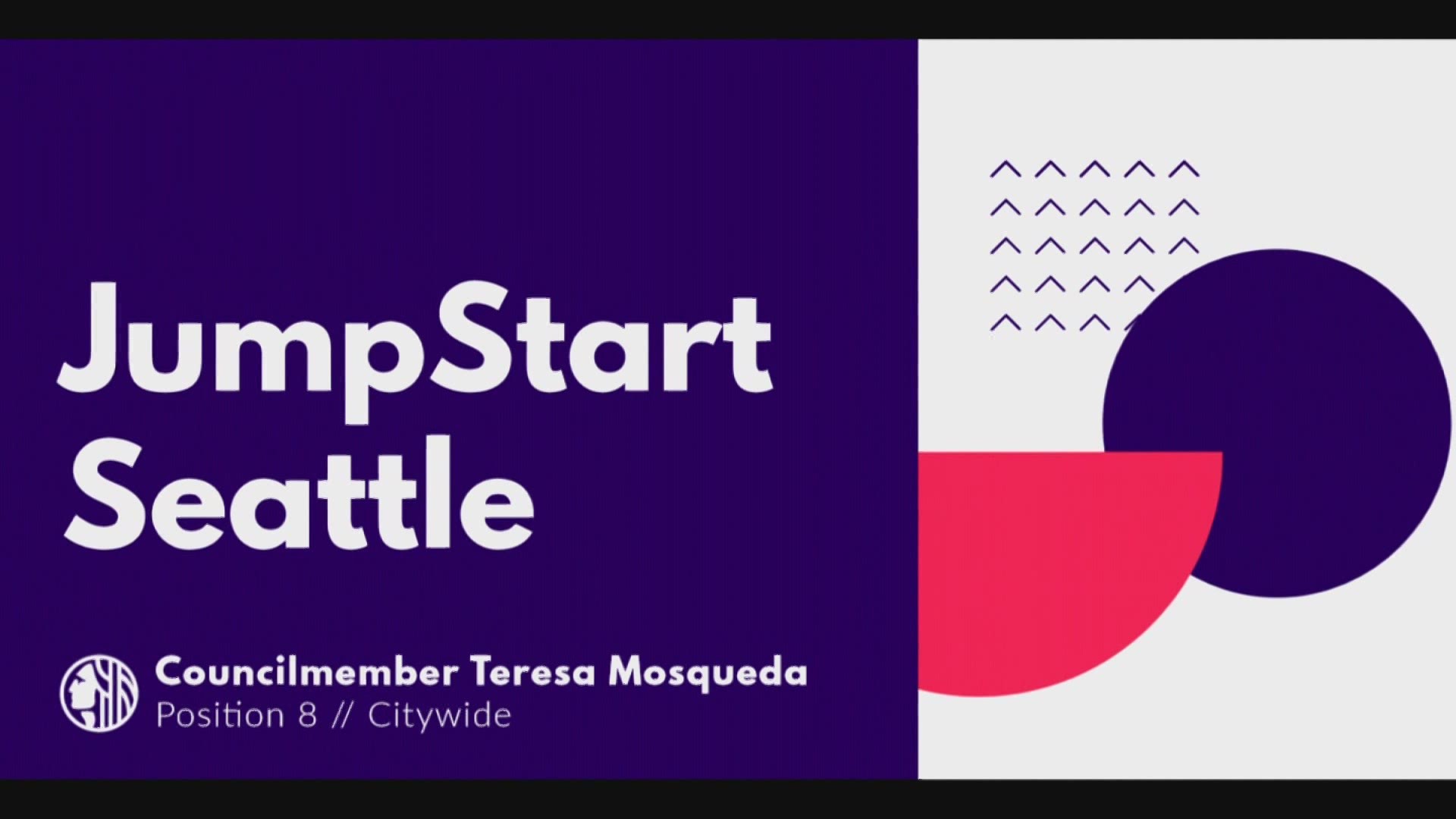Editor's note: The above video on the legal challenge to Seattle's JumpStart tax originally aired June 04, 2021.
SEATTLE - Seattle City Councilmember Teresa Mosqueda is celebrating the latest revenue numbers from her controversial, pandemic-inspired JumpStart corporate tax, which came in above expectations.
In its first year since being enacted, the payroll tax has brought in $231 million so far this tax season, already about $31 million more than what was forecasted.
However, revenue from the tax will continue to be collected through the end of February.
The tax applies to companies who spend more than $7 million in payroll, issuing a 0.7% tax for companies that offer employees more than $150,000 but less than $500,000 a year and a 1.4% tax on companies paying employees more than $500,000 annually.
The tax was proposed by Mosqueda as a way to generate funds that could help the city and small businesses withstand the financial woes of the COVID-19 pandemic.
In a statement released Monday, Mosqueda said in part, “But not for JumpStart, our city budget would have been in the red. Without JumpStart, Seattle would have faced an austerity budget during COVID. When we needed critical city services, and we would have been forced to scale back support and cut jobs. Because of JumpStart, we were able to invest in the most pressing issue in our city: doubling the investment in housing in the budget to a historic $194 million.”
The tax was legally challenged by the city’s Chamber of Commerce following its July 2020 approval, arguing that the tax was unconstitutional. In June 2021, a King County judge dismissed the lawsuit, saying that the city is within its rights to tax businesses.
A majority of the funding from the JumpStart tax will go directly toward one of the issues voters signaled was a top priority during the latest election: housing.
More than 60% of the revenue from the payroll tax will help with affordable housing, homeownership programs and go towards a community investment fund. The rest will help with small business assistance, as many continue to recover from the pandemic, along with Green New Deal agenda priorities and community initiatives focused on building equity.
Meanwhile, signs have recently been emerging that the pandemic is waning, if only slightly, in the Puget Sound region as case numbers and hospitalizations saw a steep decline through the first half of February.
The positive trends led to Gov. Jay Inslee calling for an end to the statewide outdoor mask mandate and even considering announcing a potential end date for the indoor mask mandate.
Most recent data shows King County has seen a 24% decrease in cases over the last seven days and a 21% decrease in hospitalizations.

